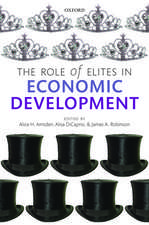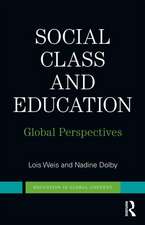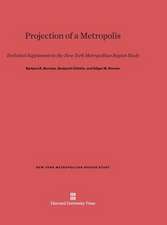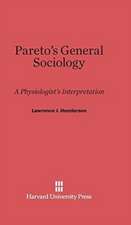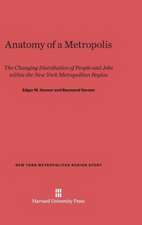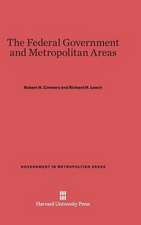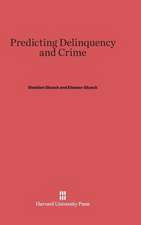Intellectuals and Politics (Routledge Revivals): Routledge Revivals
Autor Robert Brymen Limba Engleză Hardback – 2 iul 2010
Clearly written, and assuming only a basic grounding in sociological theory, this book will thus be of special interest to students of political sociology, social movements, the sociology of knowledge, the sociology of culture and the sociology of intellectuals.
| Toate formatele și edițiile | Preț | Express |
|---|---|---|
| Paperback (1) | 401.79 lei 6-8 săpt. | |
| Taylor & Francis – 14 mar 2011 | 401.79 lei 6-8 săpt. | |
| Hardback (1) | 775.51 lei 6-8 săpt. | |
| Taylor & Francis – 2 iul 2010 | 775.51 lei 6-8 săpt. |
Din seria Routledge Revivals
- 9%
 Preț: 801.71 lei
Preț: 801.71 lei - 8%
 Preț: 432.64 lei
Preț: 432.64 lei -
 Preț: 168.89 lei
Preț: 168.89 lei -
 Preț: 245.88 lei
Preț: 245.88 lei -
 Preț: 309.79 lei
Preț: 309.79 lei -
 Preț: 258.73 lei
Preț: 258.73 lei - 9%
 Preț: 764.35 lei
Preț: 764.35 lei - 9%
 Preț: 903.42 lei
Preț: 903.42 lei -
 Preț: 311.18 lei
Preț: 311.18 lei -
 Preț: 357.45 lei
Preț: 357.45 lei - 9%
 Preț: 626.93 lei
Preț: 626.93 lei -
 Preț: 317.54 lei
Preț: 317.54 lei - 9%
 Preț: 764.30 lei
Preț: 764.30 lei -
 Preț: 257.01 lei
Preț: 257.01 lei -
 Preț: 238.40 lei
Preț: 238.40 lei -
 Preț: 259.48 lei
Preț: 259.48 lei - 9%
 Preț: 938.10 lei
Preț: 938.10 lei -
 Preț: 341.33 lei
Preț: 341.33 lei -
 Preț: 264.10 lei
Preț: 264.10 lei -
 Preț: 294.98 lei
Preț: 294.98 lei -
 Preț: 308.89 lei
Preț: 308.89 lei -
 Preț: 207.40 lei
Preț: 207.40 lei -
 Preț: 347.50 lei
Preț: 347.50 lei -
 Preț: 302.59 lei
Preț: 302.59 lei -
 Preț: 389.40 lei
Preț: 389.40 lei -
 Preț: 257.01 lei
Preț: 257.01 lei -
 Preț: 358.30 lei
Preț: 358.30 lei - 9%
 Preț: 640.91 lei
Preț: 640.91 lei - 9%
 Preț: 619.49 lei
Preț: 619.49 lei -
 Preț: 228.88 lei
Preț: 228.88 lei -
 Preț: 265.16 lei
Preț: 265.16 lei -
 Preț: 257.90 lei
Preț: 257.90 lei -
 Preț: 266.06 lei
Preț: 266.06 lei -
 Preț: 258.73 lei
Preț: 258.73 lei -
 Preț: 384.01 lei
Preț: 384.01 lei -
 Preț: 246.38 lei
Preț: 246.38 lei - 9%
 Preț: 832.08 lei
Preț: 832.08 lei -
 Preț: 266.20 lei
Preț: 266.20 lei -
 Preț: 294.53 lei
Preț: 294.53 lei - 18%
 Preț: 695.86 lei
Preț: 695.86 lei - 9%
 Preț: 934.96 lei
Preț: 934.96 lei - 5%
 Preț: 243.38 lei
Preț: 243.38 lei -
 Preț: 274.69 lei
Preț: 274.69 lei -
 Preț: 208.20 lei
Preț: 208.20 lei - 9%
 Preț: 659.19 lei
Preț: 659.19 lei -
 Preț: 259.69 lei
Preț: 259.69 lei - 9%
 Preț: 1038.47 lei
Preț: 1038.47 lei -
 Preț: 389.46 lei
Preț: 389.46 lei -
 Preț: 302.14 lei
Preț: 302.14 lei -
 Preț: 302.27 lei
Preț: 302.27 lei
Preț: 775.51 lei
Preț vechi: 945.75 lei
-18% Nou
Puncte Express: 1163
Preț estimativ în valută:
148.41€ • 161.15$ • 124.67£
148.41€ • 161.15$ • 124.67£
Carte tipărită la comandă
Livrare economică 22 aprilie-06 mai
Preluare comenzi: 021 569.72.76
Specificații
ISBN-13: 9780415589253
ISBN-10: 0415589258
Pagini: 90
Ilustrații: black & white illustrations
Dimensiuni: 138 x 216 x 6 mm
Greutate: 0.25 kg
Ediția:1
Editura: Taylor & Francis
Colecția Routledge
Seria Routledge Revivals
Locul publicării:Oxford, United Kingdom
ISBN-10: 0415589258
Pagini: 90
Ilustrații: black & white illustrations
Dimensiuni: 138 x 216 x 6 mm
Greutate: 0.25 kg
Ediția:1
Editura: Taylor & Francis
Colecția Routledge
Seria Routledge Revivals
Locul publicării:Oxford, United Kingdom
Cuprins
1. Introduction 2. Radicals and Moderates 3. Oligarchs and Democrats 4. Leftists and Rightists 5. Conclusions
Descriere
This essay, first published in 1980, analyses the relationship between intellectuals’ social locations and their political orientations. Dr Brym provides a critical discussion of the various sociological views of intellectuals and specifies some of the social conditions which encourage intellectuals to follow various directions on the political compass. He also demonstrates that intellectuals are neither socially rootless nor tied to one particular class or group within society, concluding that it is only by an analysis of intellectuals’ mobility patterns that we can hope to arrive at an adequate understanding of their politics.




